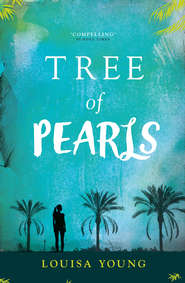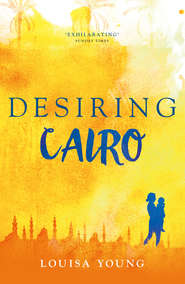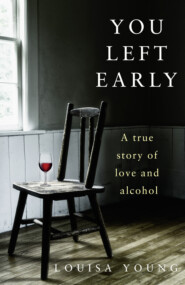По всем вопросам обращайтесь на: info@litportal.ru
(©) 2003-2024.
✖
My Dear I Wanted to Tell You
Настройки чтения
Размер шрифта
Высота строк
Поля
‘What do you think of the war, then?’ asked Terence, one late August morning. ‘Pretty bad, isn’t it? Everyone’s getting very het up. ’
‘Are you?’ asked Riley.
‘I’m not the type,’ said Terence.
It turned out that ‘not doing anything he might not want to do’ meant not taking his clothes off.
‘I’ll take my clothes off,’ said Riley, mildly. ‘If there’s more money in it.’ Whatever happened, he was going to need money.
There was more money. Riley thought it was funny.
But he quite liked Terence. He observed his manners, copied his nonchalance, stole words off him, and then dropped them again, mostly. The public-school languidity and slang seemed to him unmanly. Riley was looking around for the kind of man he might be going to be, and having trouble finding one. He wasn’t ever going to deny what he was. But he needed to do better. How to reconcile that? He was eighteen now. School was finished, and no one had suggested any possible future activities. How long would he be Sir Alfred’s boy? What could he be, a boy like him? But there was a problem. The first step in every direction was Nadine, and the shadow of Nadine not being permitted overhung . . . everything. Every possible step into every possible future: impossible. Impermissible.
Perhaps if I made lots of money . . . the City? But you need money to start. Art? Not talented enough. And how would you pay for art school?
Crime?
He laughed.
But sitting naked in front of Terence wasn’t going to do it . . .
While Terence drew him, he thought about what he read in the papers: angels appearing on the battlefield, the evil demon Hun, and the boys Over There. He wondered. Boys from Paddington were going, his mother had told him. ‘But don’t you go joining up,’ she said. ‘The army’s just another trick they play on us.’ Her dad, Riley knew, had been killed somewhere in Africa, in the army. ‘You don’t want to go getting involved with abroad,’ Bethan said.
France, to Riley, meant the golden sunflowers Van Gogh had painted in Arles, the bright skies, the lines of trees, the colours of Matisse, the sea, Renoir’s girls in bars, David’s dramatic half-naked heroes, Fragonard’s girls with their petticoats flying, Ingres’ society ladies with their white skin, black hair and melting fingers . . . He thought of Olympia, naked on her chaise-longue, with the little black ribbon round her neck and that look on her face. He thought about Nadine. He thought that, as he was naked, perhaps he had better think about something else.
It was only natural that Terence should stare at Riley’s body, given that he was drawing it. He stared at Riley standing, sitting, lying across the chair. Riley was what they call ‘not too tall but well-knit’, cleanly muscled, and his skin was particularly white like an Ingres lady’s.
‘I don’t suppose . . .’ said Terence, that afternoon. ‘No, of course not.’
‘What?’ said Riley, but Terence wouldn’t say, and suggested they pack up as the light was going, which it wasn’t.
Chapter Three
There was a recruiting party up by Paddington station. On the Sunday, coming back from his mum and dad’s, Riley had seen them marching around in their red coats, the sergeant pointing at men in the crowd, telling them they had to go to France because gallant little Belgium needed them. He’d seen gallant little Belgium on a poster: she was a beautiful woman in a nightie, apparently, being chased by a red-eyed Hun demon in a helmet with a point on it. She became, slightly, in his mind, Nadine’s mother, Jacqueline.
You had to be five foot eight, the sign said. Riley saw a fair number of lads turned away for being too little and skinny. The rest were piling in, and everyone around was cheering them along, and they were grinning sheepishly. Happy and excited. Going to France! Shiny buttons and boots and, Jesus Christ, square meals and a different life!
Once again Riley thanked God, who had so completely blessed him. In his mind he ran through: Sir Alfred, his kindness and generosity; Mum and Dad, their love – except when Dad said art was all very well but a bit nancy, wasn’t it, for a man?; the education he was getting. Though he needed more. Always more. Perhaps in the evenings. There was a Working Men’s Institute . . . history, science, philosophy, maths . . .
And Nadine, that bloody girl. Whom he had to kiss. I will die if I don’t kiss her.But how on earth can I kiss her?
I am a lucky, lucky boy, he thought, and I will do better, I will do whatever it takes, and he swore to himself once again that he would not squander what he had been given.
*
One Saturday Nadine did not turn up.
‘Miss Waveney ill, sir?’ Riley enquired of Sir Alfred, at the ewer in the studio.
Sir Alfred, without looking up, said: ‘Miss Waveney’s well-being is not your concern, Riley.’
Oh!
‘Is it not, sir?’ Riley said carefully, after a moment.
‘No,’ said Sir Alfred.
Riley let that settle a moment. He tried to. It wouldn’t. It grew tumultuous in his belly.
Riley’s fingers moved over the silken tip of the brush he was cleaning, a hollow feeling threading through him.
‘Is she not coming again, sir?’ he said, giving a last opportunity for what was happening not to be true.
‘That’s not your business either, Riley,’ said Sir Alfred.
Oh.
Brush. Fingers. Turpentine.
Damn it, ask outright. He’s implying it.
‘Would she continue to come, sir, if I wasn’t here?’
Sir Alfred almost snapped: ‘Don’t flatter yourself.’ Then he thought for a moment and said precisely: ‘Changes are not made to my household to accommodate the parents of my pupils.’ He looked a warning at Riley: Don’t pursue this. I am not going to discuss it.
Riley had to think about that.
What does he mean? What – what has happened?
Have Mr and Mrs Waveney asked him to get rid of me? Because of Nadine? . . . And has he refused?
He couldn’t read it any other way.
But it’s not fair . . .
‘Miss Waveney is talented, sir,’ he said. ‘More than . . . most.’ He didn’t want to say, ‘more than me’. He knew he couldn’t set himself up against her. Why not? Because she is posh and you are not?
Sir Alfred took his time answering. Eventually he said, ‘Miss Waveney is a girl. She will be happiest and most fulfilled in the bosom of her family, making a good marriage.’
Inside, Riley reeled.
But you knew that all along! a voice inside told him. You’ve always known! You didn’t really hope!
This is not fair. They’ve taken her away. I won’t see her. She won’t learn any more. I won’t see her.
Actually, he had really hoped. And it’s not fair on her! She wants to be an artist, and she could be!
‘I’m going to Terence’s studio this afternoon, sir,’ he said. His voice was small and tight. ‘I shouldn’t be too late.’











